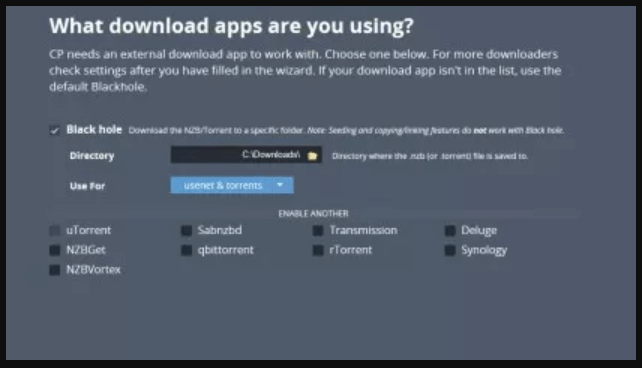

- FORCE COUCHPOTATO RENAMER HOW TO
- FORCE COUCHPOTATO RENAMER MOVIE
- FORCE COUCHPOTATO RENAMER INSTALL
- FORCE COUCHPOTATO RENAMER UPDATE
- FORCE COUCHPOTATO RENAMER FULL
In a nut shell, you tell SickBeard what TV shows you want to watch and it acts like an Internet-powered TiVo, downloading those shows for you (either from a backlog if you’re catching up or as they are released if your show collection is up to date). SickBeard is a television management tool for Usenet and BitTorrent downloads–the Usenet support is significantly more mature than the BitTorrent support, but they’re both functional. Installing and Configuring SickBeard on Raspbian At the terminal, enter the following command:Īfter installing Git and Python-Cheetah (if you’re planning on using SickBeard for TV shows), we’re ready to get started.
FORCE COUCHPOTATO RENAMER INSTALL
If you only followed along with the BitTorrent guide, you’ll need to install it.
FORCE COUCHPOTATO RENAMER HOW TO
If you installed SABnzbd in the How to Turn a Raspberry Pi into an Always-On Usenet Machine guide, you already have Cheetah installed. In addition to Git, SickBeard (but not CouchPotato or Headphones) is dependent on Cheetah, a Python template tool. If it doesn’t return a version number, run the installer again. Afterwards, double check the installation by typing “git –version” at the prompt to check that git is installed. When prompted, press Y to continue the installation and the wait for a minute or two as the processes finishes. At the terminal, enter the following commands: Since Rasbian doesn’t ship with Git, we’ll need to install it. First, all of the tools use the Git software source code management tool. If you *just* followed along with our previous Raspberry Pi tutorials you can safely skip this as you’ve just recently upgraded.Īt the terminal, enter the following commands:Īfter you’ve updated/upgraded, it’s time to start installing the specific dependencies we need.
FORCE COUCHPOTATO RENAMER UPDATE
(We will not be addressing dependencies that are already installed with the default Rasbian distribution.)īefore anything else, we’re going to update and upgrade our apt-get installer. In order to use the tools outlined in this guide–SickBeard, CouchPotato, and Headphones–you’ll need to install a few dependencies before you get started.
FORCE COUCHPOTATO RENAMER FULL
Once you’re past the catch-up flurry everything should be fine, but unleashing all three automation apps side-by-side full bore in the beginning is really rough with the limited resources available to the Pi. However, as each automation system tends to be a little heavy on the front end (when you first install it there is often a lot of heavy lifting to do like finding and downloading past episodes of television shows you want to watch), we’d suggest giving each installation a little breathing room in order to allow it to monopolize system resources, SABnzbd, and the USB HDD. We found that you can install them all on a Raspberry Pi without bogging the system down too severely.
FORCE COUCHPOTATO RENAMER MOVIE
If you want to automate television show snatching but not movie snatching, for example, you’re free to skip to the relevant portion of the tutorial and ignore the rest.įinally, a small note about installing all the automation tools in this guide. Once you are at that stage, however, it’s time to get down to the business of automating your entire build for hands-off downloading goodness.Įach section of the tutorial is independent of the others.

The following sections of the tutorial and the tools contained therein will be of little use to you if you haven’t already set up your Raspberry Pi and have reached the can-access-BitTorrent/Usenet stage.


 0 kommentar(er)
0 kommentar(er)
